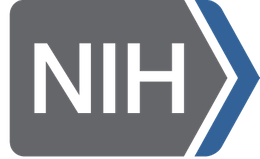Diabetes and Hypertension Facts for African-Americans
Both diseases are a major cause for kidney failure in blacks
It's a Fact:
- African-Americans have a higher rate of kidney failure than any other group of people.
- Diabetes is the No. 1 cause of kidney failure among African-Americans. High blood pressure is the No. 2 cause
Diabetes and high blood pressure can damage the kidneys and lead to kidney disease.
You need to get checked for kidney disease if you have one of these conditions.
- Early kidney disease has no signs or symptoms. The only way to know if you have kidney disease is to get checked for it.
- Kidney disease does not go away. It may get worse over time and can lead to kidney failure. You will need to go on dialysis or have a kidney transplant if your kidneys fail.
- Kidney disease can be treated. The sooner you know you have kidney disease, the sooner you can get treatment to help delay or prevent kidney failure.
Treating Kidney Disease May Also Help Prevent Heart Disease
You also should be checked for kidney disease if you have:
- Cardiovascular (heart) disease.
- A mother, father, sister, or brother with kidney failure.
How Will I Be Checked for Kidney Disease?
Two tests are used to check for kidney disease.
- A blood test checks your GFR, which tells how well your kidneys are filtering. GFR stands for glomerular (glow-MAIR-you-lure) filtration rate.
- A urine test checks for albumin in your urine. Albumin is a protein that can pass into the urine when the kidneys are damaged.
At Your Next Health Care Visit, Make Sure:
- You learn your GFR and the amount of albumin in your urine. Both should be checked if you have diabetes or high blood pressure.
- Your blood pressure and blood sugar have been checked and are in your target range. Your blood pressure should be checked at each visit, and your blood sugar should be checked yearly if you have diabetes. If your levels are too high, work with your health care team to get them in a range that’s right for you.
What Steps Can I Take to Keep My Kidneys Healthy?
- Get checked for kidney disease. The sooner you know you have kidney disease, the sooner it can be treated.
- Manage your diabetes and keep your blood pressure below 130/80.
- Eat healthy.
- Cut back on salt.
- Be active.
- Take medicines as prescribed
Tell Others About the Kidney Connection
Help your family or faith community Make the Kidney Connection between diabetes, high blood pressure and kidney disease. You don’t have to be a health expert to talk to them about kidney health and the importance of getting checked.
For More Information
National Kidney Disease Education Program (NKDEP)
Toll free at (866) 454-3639
National Diabetes Education Program
Toll free at (800) 438-5383
National High Blood Pressure Education Program
(301) 592-8573
National Kidney and Urologic Diseases Information Clearinghouse
Toll free at (800) 891-5390
National Diabetes Information Clearinghouse
Toll free at (800) 860-8747
Adapted from "What African Americans with Diabetes or High Blood Pressure Need to Know," a publication of the National Institute of Diabetes and Digestive and Kidney Diseases (NIDDK), National Institutes of Health (NIH).

The National Institutes of Health, a part of the U.S. Department of Health and Human Services, is the nation's medical research agency — making important discoveries that improve health and save lives. NIH is the largest single source of financing for medical research in the world, seeking new ways to cure disease, alleviate suffering and prevent illness. By providing the evidence base for health decisions by individuals and their clinicians, NIH is empowering Americans to embrace healthy living through informed decision-making. NIH is made up of 27 institutes and centers, each with a specific research agenda, focusing on stages of life, like aging or child health, or particular diseases or body systems.

